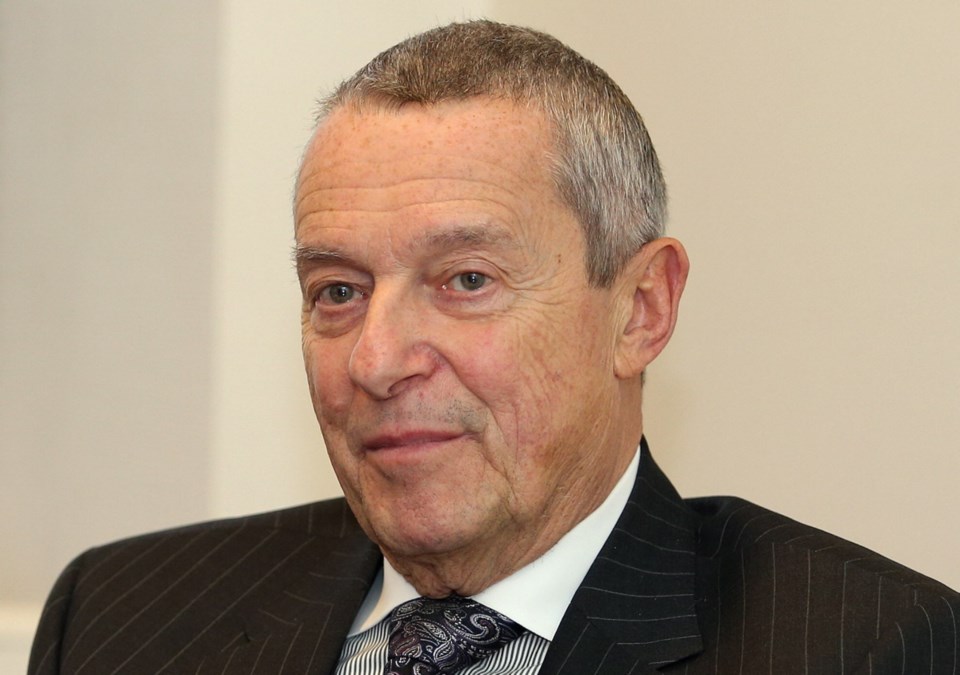The province is offering to help B.C. municipalities get a grip on their unionized and executive staff compensation packages.
“Our greatest costs is our staff,” Community Minister Peter Fassbender told delegates at the Union of B.C. Municipalities convention in Victoria on Friday.
“We as government are not going to impose anything on local governments. We want to sit at the table and talk about compensation in all of it’s aspects and to see what we can do.”
Fassbender later told reporters it will up to the UBCM and local governments to decide if they want to get on board.
“There’s no hidden threat here or a veiled message. It’s simply: Let’s sit down. Let’s talk about that. Let the province share what we’ve been very successful in doing in both getting agreements and sharing the prosperity that the province has.”
Salaries — both executive and union — have been trending higher at the municipal level in B.C. compared with average compensation in the provincial public sector.
The province has experience it can share with municipalities, Fassbender said.
“Ninety-eight per cent of our collective agreements have been negotiated at the table — not imposed — and we have been able to maintain and control costs, but also respecting the rights of workers,” he told delegates.
Fassbender said unionized provincial government workers will soon be receiving cheques as the province honours commitments made in collective agreements to share the wealth when the province prospers.
Some local officials said that while they had no difficulty with a review of compensation, they would prefer a more wide-ranging discussion of possible revenue sources.
In 2013, recognizing that property taxes were pretty much tapped out, the UBCM produced a policy paper calling on the province to consider providing municipalities with alternative revenue sources so they could repair aging infrastructure without increasing the burden on local property taxpayers.
Called Strong Fiscal Futures, the paper called for revenue sharing through creation of an Infrastructure Development and Community Building Bank designed to ensure that local government would share in the wealth if the economy performs above a set benchmark.
Fassbender said he wanted to start with compensation discussions and see where that leads. He pointed to $450 million in combined provincial-federal funding for municipal water and sewer projects as an example of the province sharing the wealth with municipalities. The feds are providing 50 per cent of the funding ($225 million), while the province is kicking in 33 per cent ($148.5 million).
Victoria Mayor Lisa Helps said she would like to see Fassbender work with the UBCM to address the issues in the Strong Fiscal Futures report in its entirety.
“It’s a suite of policy proposals that, taken together, will strengthen the ability of local government to deliver high quality and cost effective services and infrastructure,” she said.
View Royal Mayor David Screech and Esquimalt Mayor Barb Desjardins said provincial help would be welcomed in the area of police and fire arbitration awards.
When an agreement can’t be reached through collective bargaining, the wages of essential services employees are determined by an arbitrator appointed under the Fire and Police Services Collective Bargaining Act.
Some municipal politicians have complained that arbitrators give too much weight in their considerations to wage and benefit packages awarded employees doing similar work in different jurisdictions. Tom Stamatakis, president of the British Columbia Police Association, disagrees, last year saying that the legislation clearly spells out the factors that an arbitrator must consider, including local economic conditions.
“That’s one area where the province really could help, is to look at the binding arbitration agreement that firefighters have,” Screech said.
“Because the firefighters always seem to almost automatically go to arbitration as opposed to negotiating a deal.”
Desjardins agreed, saying first responders’ wages “are escalating exponentially.”
Research material prepared by the UBCM notes that, since 1984, CUPE wages have approximately kept pace with average weekly wages in B.C. — slightly exceeding the increase in the consumer price index. B.C. Government and Service Employees’ Union wages, which had several years of no increases over the period, have fallen slightly behind inflation.
Police and fire wages, however, “have substantially exceeded both inflation and CUPE wages, exacerbating differences between protective service employees and other municipal employees,” the background material says.
“The province could be very helpful in fixing the arbitration process such that it could be more equitable,” Desjardins said, adding that local municipalities are being forced to match packages paid in jurisdictions such as Toronto and Vancouver.
“[Arbitration] usually doesn’t provide any relief. It doesn’t understand the community’s ability to pay nor does it understand the situation of the community in terms of cost of living or anything else.”



